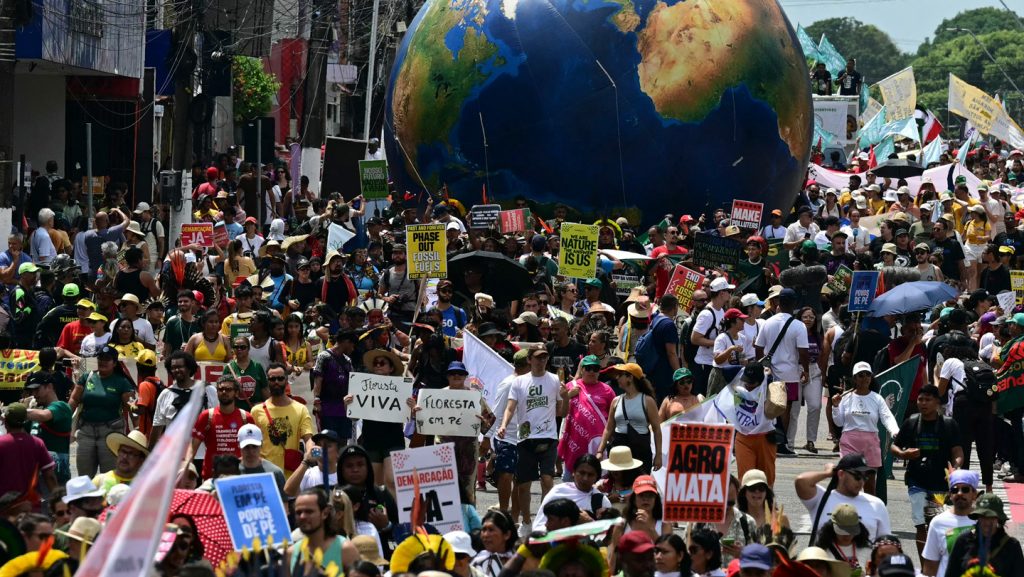Climate Action Beyond the Framework: Initiatives Shaping a Sustainable Future
In the heart of the Amazon rainforest, global climate leaders gathered in Belém, Brazil for the 30th United Nations Conference of the Parties (COP30). This momentous location—a region embodying both the perils and potential of our climate crisis—provided a symbolic backdrop for what was meant to be a transformative summit. A decade after the Paris Agreement, where 196 nations pledged to limit global warming to 1.5 degrees Celsius by 2100, COP30 was billed as the “COP of action”—a pivot from negotiation to implementation. The timing couldn’t have been more critical, as confidence in international climate pacts wanes amid soaring global temperatures and unfulfilled promises.
The summit faced formidable challenges from the outset. The United States, the world’s largest historical greenhouse gas emitter, was notably absent under President Donald Trump’s administration. After days of tense negotiations, the final agreement—dubbed the “mutirão” or “collective effort”—fell short of its ambitious goals. While it included a pledge of $120 billion annually for climate adaptation, this funding won’t materialize until 2035, five years later than hoped. Even more concerning was the conspicuous omission of “fossil fuels” from the final text—a significant retreat from even the modest commitments made at COP28. U.N. Climate Change Executive Secretary Simon Stiell acknowledged this frustration at the closing plenary, stating, “Many of those frustrations I share myself.” Nevertheless, he emphasized that “markets are moving, and a new economy is rising. The old polluting economy is running out of road.” Despite the agonizingly slow progress, Stiell maintained that COP remains vital in keeping climate at the top of the global agenda.
Beyond the formal governmental negotiations, a more encouraging narrative emerged. Nations, nonprofits, and industry organizations leveraged the global spotlight to coordinate and implement voluntary commitments and initiatives that promise real-world climate action. One significant development was Brazil’s Ministry of Finance launching the Open Coalition on Compliance Carbon Markets. This initiative, built on research from Harvard and MIT, has already garnered support from 18 countries including the European Union, China, the United Kingdom, and Norway. Arathi Rao, director of the Global Climate Policy Project, called it a “landmark” initiative that would encourage countries to both produce and sell products in environmentally sustainable ways. The coalition could particularly benefit emerging economies, especially those in Africa, where relatively green industries—like Mozambique’s hydropowered aluminum production—could become more competitive in global markets where carbon-intensive imports face heavier taxation.
Despite forests receiving minimal attention in the final COP30 agreement—a disappointment given the Amazon setting—significant initiatives emerged outside the official framework. The Tropical Forests Forever Facility (TFFF), championed by Brazil and shaped with World Bank assistance, represents an innovative approach to forest conservation. Unlike traditional climate funds dependent on donations, TFFF functions as an endowment that rewards countries taking action to conserve their forests. Though it received endorsements from 53 countries, the project has secured only $6.6 billion in pledges so far—well short of its $25 billion target. Meanwhile, France is spearheading an initiative to contribute at least $2.5 billion over five years to protect the Congo Basin rainforest, and more than 35 government and philanthropic funders announced a $1.8 billion pledge to support Indigenous Peoples and local communities in securing land rights worldwide—a crucial move given that Indigenous-managed forests consistently demonstrate lower deforestation rates.
Ocean and coastal ecosystem advocates made significant strides at COP30, even as their concerns weren’t fully integrated into the final agreement. Brazil appointed marine scientist Marinez Scherer as Special Envoy for the Oceans, who unveiled the Blue Package—a voluntary plan to accelerate existing ocean-climate solutions by 2028. These include offshore wind farms, zero-emission shipping, marine conservation, and sustainable aquatic food systems. “We don’t have to ‘reinvent the wheel’ to address marine issues,” Scherer noted. “We already have solutions that can serve as examples or be replicated.” Additionally, Brazil and France introduced the Task Force on Oceans, aimed at incorporating ocean-based solutions into national climate action plans. Seventeen countries joined this “Blue NDC Challenge,” including four of the world’s ten largest economies. Brazil also joined the High Level Panel for a Sustainable Ocean Economy, pledging to sustainably manage its entire coastal waters—the largest in South America—by 2030.
As we reflect on COP30’s outcomes, it becomes increasingly clear that the most promising climate actions may emerge not from formal agreements but from coalitions of the willing working outside traditional frameworks. The carbon market coalition offers a path for developing economies to compete globally while reducing emissions. Forest protection initiatives, though underfunded compared to their ambitions, are creating new mechanisms to reward conservation and indigenous stewardship. Ocean-based climate solutions are gaining momentum through multinational collaborations focused on concrete implementation rather than theoretical commitments. As Panamanian economist Juan Carlos Monterrey Gomez poignantly observed, “If there is to be a turning point, it will not come from a COP. It will come from people.” These grassroots and multi-stakeholder initiatives represent the true spirit of the “mutirão”—a collective effort that transcends political limitations to address our shared climate crisis through practical, immediate action. While official climate negotiations may progress at a frustratingly glacial pace, these parallel efforts offer hope that humanity’s response to climate change can still accelerate to meet the urgency of our moment.














